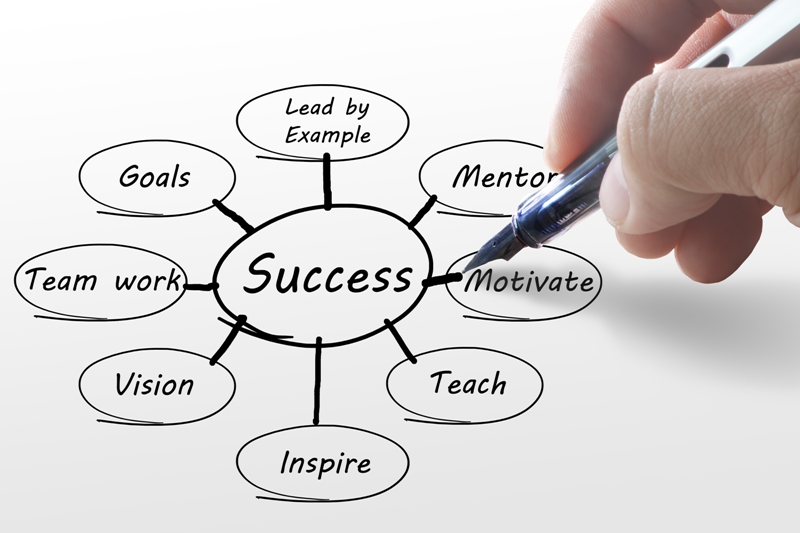Most Common Sales Mistakes – And How to Avoid Them

It’s no secret that sales is a competitive industry with little room for error. One in eight full time positions in the United States are full time sales jobs, yet representatives must continually refine their techniques to stay on the top of the game. To improve your sales performance, avoid these common pitfalls – and try more successful alternatives instead.
Mistake 1: You Talk Too Much (Or Too Little)
According to a recent study from Saleshacker, there is a happy medium when it comes to talking to a client. By medium, we actually mean “a medium amount.” The top performing sales reps talked 46% of the time or less, while they listened 54% of the time. More middle range performers tended to talk more, closer to 70% of the time. Bottom performers, on the other hand, tended to only talk 28% of the time.
In other words, know what to talk about, but also know when to listen. Understanding a client’s needs creates a more organic dialogue that helps you address their pain points.
Mistake 2: You Use The Wrong Language
Using salesy jargon can tank your efforts and make your interaction with a customer appear less genuine. Using the word “discount” can lower your chance of a sale by over 15%. Using terms like “perfect” or “absolutely” excessively (over four times) can decrease your chances by 16%. Other words to sidestep, according to a recent analysis, include:
- Billion
- However
- Competitor
- Roadmap
- Payment
- Free trial
- Contract
- For example
The problem with words like these is they make you sound like you’re rehearsing a pitch. Don’t try for a hard sell; always make your sales interactions flow like natural conversations.
Mistake 3: You Don’t Pay Attention To Detail
Are you the type to “wing it” on presentations and pitches? If so, you’re missing out on big potential opportunities. Paying attention to the smallest of details, like editing emails for grammar and clarity, all work to establish credibility with your clientele.
It’s also important to pay attention to details within interactions with the client. Verbal and non-verbal cues may hint at you to change course or find another way to address your customers’ pain points. Showing that you understand both the product and the customer is an important step in conveying a high level of competence. If you cut corners, you risk your professional reputation – and a prospect may find what they’re looking for elsewhere.
Mistake 4: You Don’t Work Hard Enough to Connect
When people make a switch from your product or service to a competitor, it’s generally because they think someone else is more capable of paying better attention. Always assume that there are others keeping in contact trying to elicit business. When all it takes to keep a customer is to make a little effort to connect and make them feel valued, there’s little excuse to become complacent and let them go.
Connection can be as simple as an email or a phone call to check in, see how the client is liking your product or service, and thanking them for their business. It’s truly all it takes to make a client happy – and is well worth the investment.
If you’re looking to improve your sales, avoiding these common mistakes is a good place to start. By using your client interaction time wisely and maintaining a commitment to current clients, you can maintain the edge in your office and keep your customers and prospects interested.
Additional Resources:
https://www.forbes.com/sites/ianaltman/2018/07/12/3-common-mistakes-every-sales-professionals-needs-to-avoid-at-all-costs/
https://www.entrepreneur.com/article/283927
https://www.inc.com/geoffrey-james/10-common-sales-mistakes-to-avoid.html


 When you hear someone could sell sawdust to a lumber mill, it means they are a good salesperson, but it’s almost an insult. It seems like trickery to sell someone things they don’t need. Effectiveness doesn’t necessarily rely on smooth talking or tricks.
When you hear someone could sell sawdust to a lumber mill, it means they are a good salesperson, but it’s almost an insult. It seems like trickery to sell someone things they don’t need. Effectiveness doesn’t necessarily rely on smooth talking or tricks.

 Professional sales coaching differs from sales training. While training occurs in a classroom setting with a group of reps, coaching involves an individualized, one-on-one relationship. Sales training happens over a matter of weeks; sales coaching takes place over months.
Professional sales coaching differs from sales training. While training occurs in a classroom setting with a group of reps, coaching involves an individualized, one-on-one relationship. Sales training happens over a matter of weeks; sales coaching takes place over months.